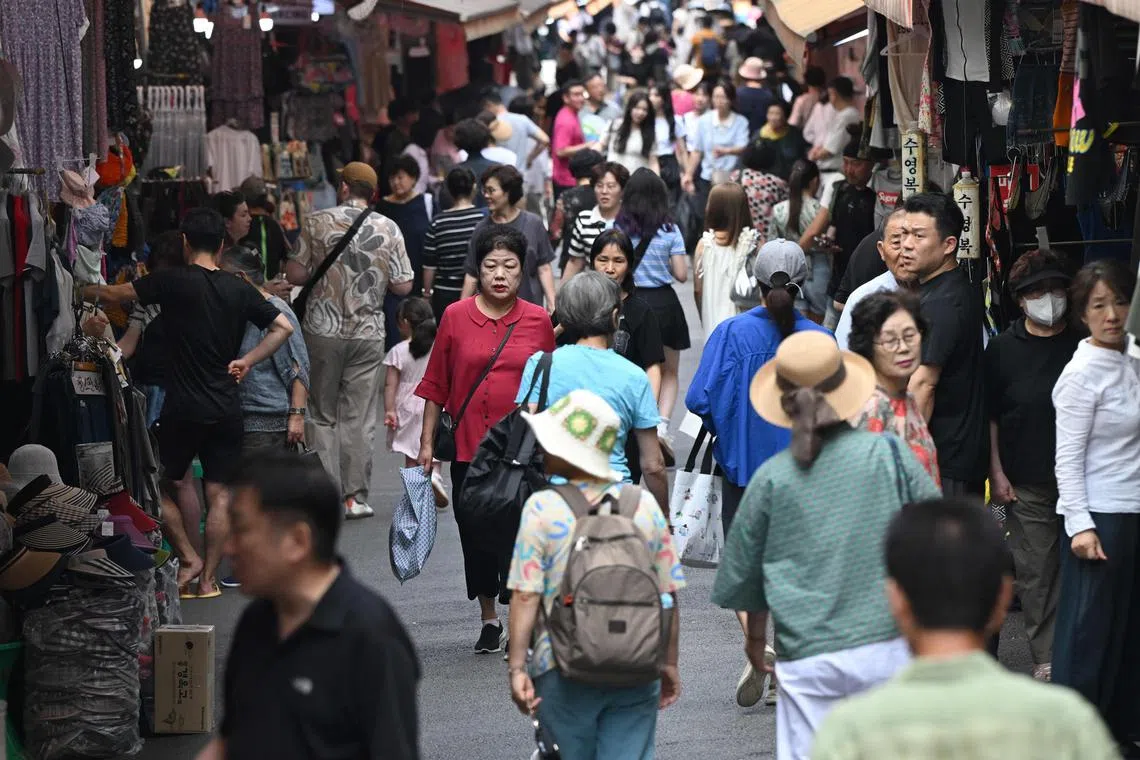Out of their main jobs by age 53, most older South Koreans hope to work – somewhere – past 73
Sign up now: Get insights on Asia's fast-moving developments

The average age at which older adults left their longest-held job was just 52.9, still far below the standard retirement age.
PHOTO: AFP
Follow topic:
SEOUL - Most older South Koreans expect to work well beyond the country’s legal retirement age of 60, if they have not already left their main job years earlier.
According to new data from Statistics Korea released on Aug 6, the average age at which people hope to retire has reached 73.4, up slightly from 73.3 in 2024. That is the highest figure since records began in 2011.
However, the reality often looks different. The average age at which older adults left their longest-held job was just 52.9, still far below the standard retirement age.
Only 30.1 per cent of surveyed older adults said they were still employed in their primary career job. The remaining 69.9 per cent had already exited those roles. Just 13 per cent said they retired after reaching the company’s designated retirement age, while 25 per cent said they left due to business challenges such as shutdowns or declining operations.
South Korea’s statutory retirement age is 60, observed across most companies and public institutions under national labor guidelines. Government officials are currently debating whether to extend that to 65, but survey data suggests that for many, retirement from their main job occurs much earlier ― voluntarily or otherwise.
10 million South Koreans aged 55 to 79 are still working somewhere
Despite early exits, the desire to continue working remains strong. Nearly 70 per cent (69.4 per cent) of respondents aged 55 to 79 said they still want to work, and retirement expectations increase with age.
For example, those aged 55 to 59 on average said they hope to retire at 69.7. In the 60 - 64 group, the target rose to 71.9. Those in their late 60s aimed for 74.9, while people in their early 70s cited 78.6, and those in their late 70s expected to retire at 82.3.
The reasons for staying in the workforce are primarily economic. A majority (54.4 per cent) said they need the income to help cover living expenses. Another 36.1 per cent said they simply enjoy working.
As a result, the number of older South Koreans who remain economically active has reached a record high. As of May 2025, 10.01 million people aged 55 to 79 were working or actively seeking work. That’s an increase of 328,000 from 2024 and the first time the figure has surpassed 10 million since Statistics Korea began tracking the data in 2005.
This age group, totaling 16.65 million nationwide, now accounts for a significant share of the country’s labor force, with about 60 per cent participating in work-related activity. The trend is expected to continue, as South Korea, one of the fastest-aging countries in the world, adjusts its labour policies to accommodate longer and more flexible working lives. THE KOREA HERALD/ASIA NEWS NETWORK

